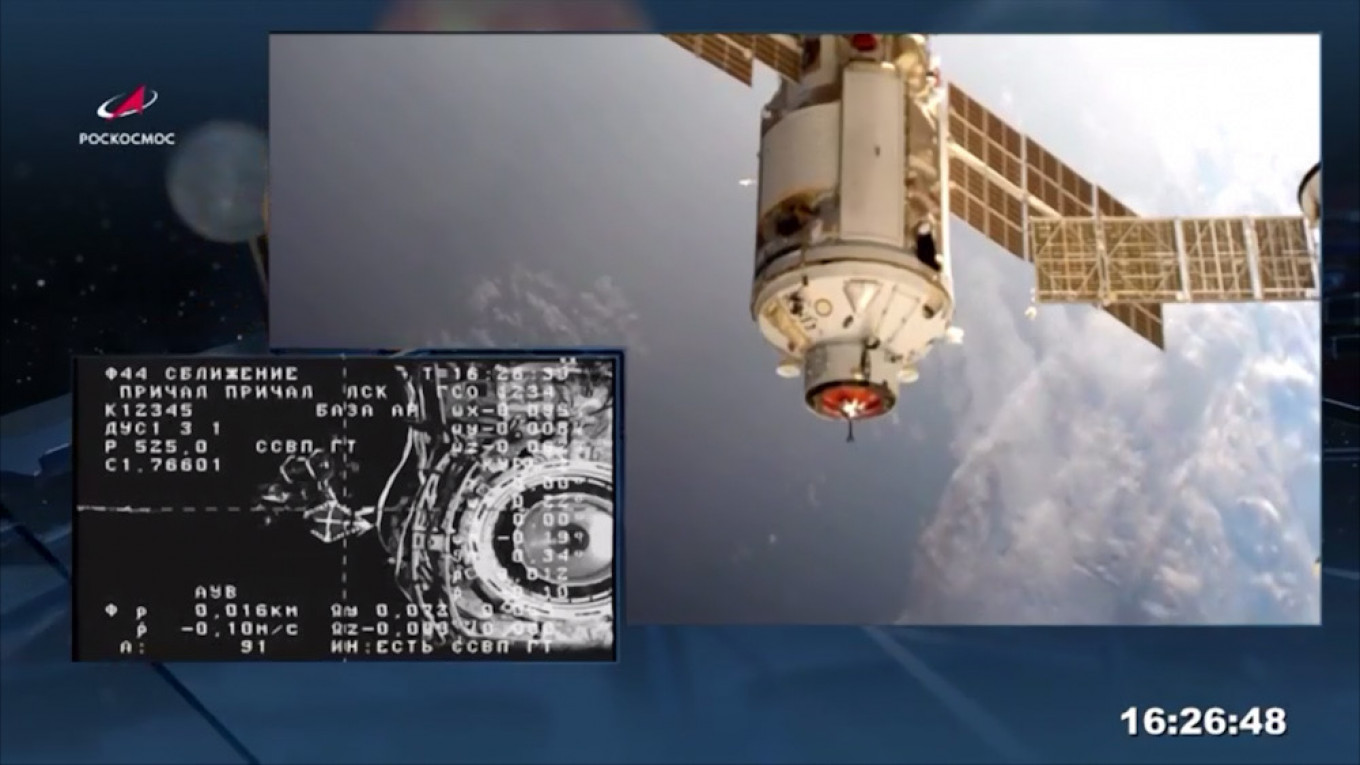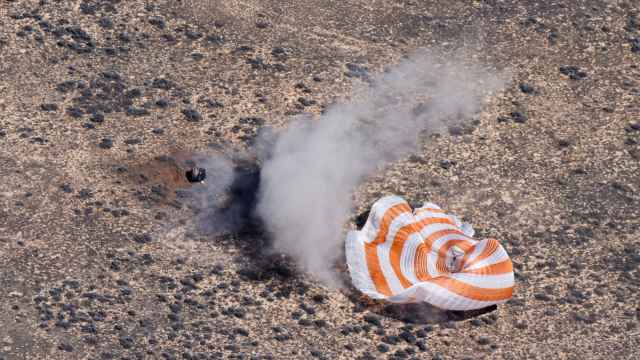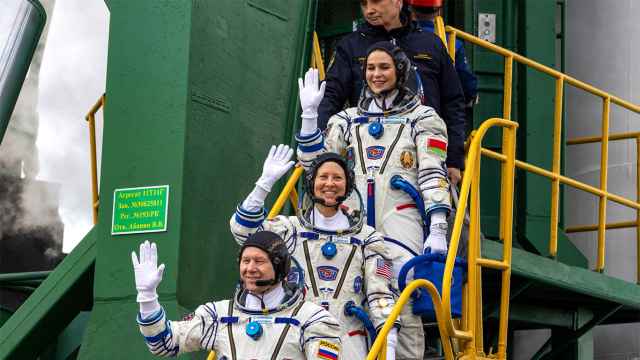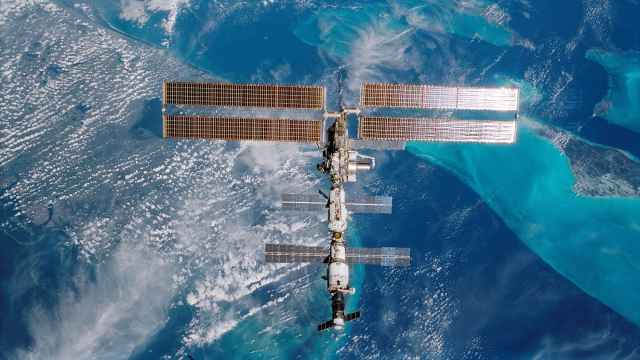Russia's troubled laboratory module Nauka on Thursday successfully docked with the International Space Station, said the Russian space agency Roscosmos, after more than a decade of delays.
"There is contact!!!" Roscosmos chief Dmitry Rogozin said on Twitter.
Images released by Roscosmos showed the new addition to the Russian segment of the ISS docking with the nadir (Earth-facing) port of the Zvezda service module at 1329 GMT.
It will now take several months and multiple spacewalks to fully integrate the module with the space station.
The Nauka module blasted off into orbit last week from the Baikonur cosmodrome in Kazakhstan carried by a Russian Proton rocket.
The launch was closely watched by the European Space Agency as the module was traveling with the European Robotic Arm, the first robot arm that will be able to work on Russia's ISS segment.
Nauka — which means "science" in Russian — will be primarily used for research and storing laboratory equipment.
It will also provide more storage space, new water, oxygen regeneration systems and improved living conditions for cosmonauts of the Russian ISS sector.
The Nauka multipurpose laboratory module was conceived as early as the mid-1990s when it was intended as a back-up for the Russian control module Zarya.
It was later repurposed as a science module but joined a line-up of stagnating Russian space projects that have fallen victim to funding problems or bureaucratic procedures.
The launch of the 20-tonne Nauka—one of the largest modules on the ISS—was initially scheduled for 2007 but has been repeatedly delayed over various issues.
While last week's launch was successful, Nauka experienced several "hiccups in orbit" during its eight-day journey to the ISS, the European Space Agency said.
Nauka replaces the long-serving Pirs docking module which joined the ISS in 2001 as a temporary addition but ended up staying in service for two decades.
Making room for Nauka, Pirs detached from the ISS earlier this week, burning up in the Earth's atmosphere and its remains falling into the Pacific Ocean.
A Message from The Moscow Times:
Dear readers,
We are facing unprecedented challenges. Russia's Prosecutor General's Office has designated The Moscow Times as an "undesirable" organization, criminalizing our work and putting our staff at risk of prosecution. This follows our earlier unjust labeling as a "foreign agent."
These actions are direct attempts to silence independent journalism in Russia. The authorities claim our work "discredits the decisions of the Russian leadership." We see things differently: we strive to provide accurate, unbiased reporting on Russia.
We, the journalists of The Moscow Times, refuse to be silenced. But to continue our work, we need your help.
Your support, no matter how small, makes a world of difference. If you can, please support us monthly starting from just $2. It's quick to set up, and every contribution makes a significant impact.
By supporting The Moscow Times, you're defending open, independent journalism in the face of repression. Thank you for standing with us.
Remind me later.







